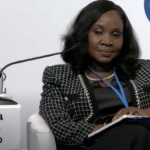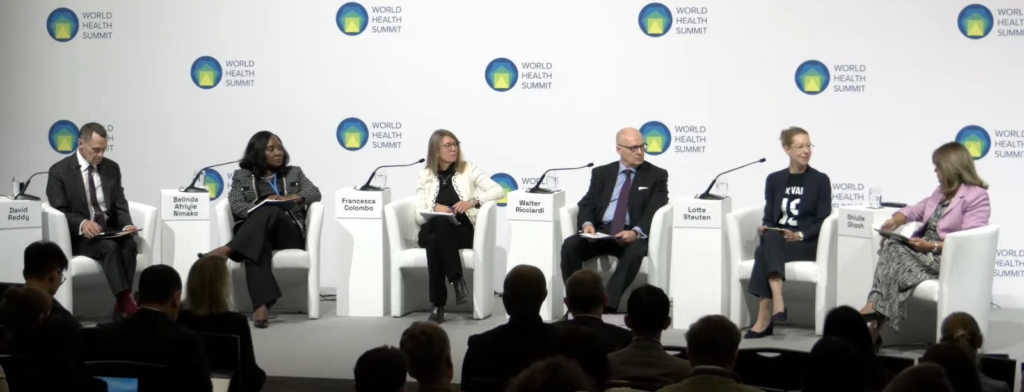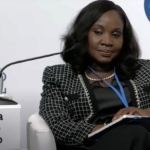
It is often said that prevention is better than cure. Yet for decades, global health systems have been structured to treat disease, not prevent it. This year, at the opening panel of the World Health Summit 2025 in Berlin themed “Prevention-Driven Approaches for Health and Economic Growth” that uncomfortable truth took centre stage.

Among the distinguished panellists, one voice resonated with disarming clarity. Dr. Belinda Nimako, Director of Policy Planning, Monitoring and Evaluation at Ghana’s Ministry of Health, didn’t simply recite statistics or lofty aspirations. She told a story that laid bare the realpolitik of prevention in low- and middle-income countries.
“Prevention was initially seen as a nice-to-do rather than a must-do,” she said. “When people are in hospital, you want to treat them. It’s more fanciful. It’s something people see.”
Her words captured a paradox that haunts health financing worldwide: the things that keep populations healthy rarely make headlines, and rarely win votes.
The visibility problem
Prevention has a visibility problem and Ghana is no exception. Politicians fund what the public can see: hospital wards, new scanners, shiny equipment. These are tangible symbols of progress. Preventive measures, by contrast, are quiet victories; a malaria infection averted, a pregnancy safely planned, a child protected by routine immunization.
Dr. Nimako recalled working as a district medical officer, canvassing for funds for a health screening program. Her Member of Parliament preferred to buy hospital beds instead. It wasn’t an irrational decision; it was a political one.
This is the reality many health systems face: budgets are shaped as much by optics as by evidence.
Ghana’s calculated turn toward prevention
But Ghana is learning to speak the language that matters in the corridors of power: numbers, costs, and returns.
Dr. Nimako and her team at the Ministry of Health have costed Ghana’s preventive and promotive health package at between $5 and $9 per capita. This figure isn’t just an estimate; it’s a political tool. When they walked into meetings at the Ministry of Finance, they didn’t just say prevention saves lives. They said, “This is what your investment buys.”
But the conversation didn’t end there. Government officials asked the next logical question: “How does this translate into hospitalizations averted and savings for the state?”
And this is where many health systems hit a wall, not because prevention isn’t effective, but because the local data needed to translate evidence into fiscal terms is often incomplete or unavailable.
This gap doesn’t diminish the value of prevention, it stresses why contextualized, country-level economic evidence is essential to shift budgetary priorities.
When public pressure works
Ghana also offers a powerful illustration of the role of public pressure. In 2023, when the country faced a vaccine shortage, weeks of quiet advocacy went unnoticed. But when the issue splashed across front pages, vaccines were sourced within 24 hours.
The lesson is clear: activism can move mountains, or at least, budgets. But it is a fragile strategy if it only activates in moments of crisis. For prevention to be sustainably financed, it must reside in budgets, not only on newspaper covers.
Prevention as a growth engine
The framing of this first panel, prevention as a driver of economic growth, may prove to be one of the most consequential shifts in global health discourse in years.
In Ghana, every malaria case averted preserves productivity. Each avoided hospitalization saves the National Health Insurance Scheme precious resources. Each maternal death prevented keeps families and communities intact.
This aligns with the UN Political Declaration on NCDs, which calls on countries to scale up prevention as a central pillar of sustainable development. But as Ghana’s experience shows, declarations alone don’t move budgets. Data, politics, and public demand do.
Prevention is not a health sector nicety. It is an economic multiplier. That is the language Ministries of Finance and political actors respond to. And that is the conversation global health must now embrace.
Global shifts & why prevention matters more than ever
The world is getting older, and so are countries like Ghana. As populations age, non-communicable diseases such as hypertension, diabetes, and heart disease are quietly overtaking infectious diseases as the biggest health threat.
These conditions already account for up to 75% of global deaths, most of them in countries with the fewest resources to cope. The price tag is staggering: trillions of dollars in lost productivity and rising health costs by 2050.
For Ghana, where every cedi counts, it is an economic ticking clock. Prevention should not be seen as luxury; it is the smartest investment the country can make.
Making prevention politically visible
For prevention to compete with roads, education, and agriculture in Ghana’s budget, it must become politically visible.
This means tying prevention efforts to flagship political programs so that politicians can claim and celebrate tangible wins, while also designing community-facing preventive initiatives that are visible, experiential, and owned by the electorate. It involves creating stable funding mechanisms such as sin taxes or integrating prevention into national health insurance schemes, to shield these efforts from the unpredictability of political cycles. Additionally, it requires building collaborative alliances, including with the private sector, to amplify investment, drive innovation, and strengthen accountability.
As Dr. Nimako noted, “In Ghana, health is politics.” If prevention is to thrive, it must be politically irresistible.
A global conversation with local lessons
This panel set a tone for the Summit. It signalled a shift in narrative: from seeing prevention as a cost, to recognizing it as a strategic national investment.
Ghana’s evolving model of blending evidence, fiscal framing, and public pressure, offers a pattern for countries grappling with the same dilemma. It also shows where the work remains unfinished.
What remain clear to me is that policy isn’t shaped by data alone. It is shaped by the language in which that data is delivered, the alliances that sustain it, and the politics that carry it forward.
As the world debates how to build health systems fit for the future, Ghana’s story makes a compelling case; the future will belong to the nations that invest not in more hospital beds, but rather in fewer patients needing them.
Prevention must move from the footnotes of health budgets to the frontlines of national growth strategies.
Not tomorrow. Not in the next crisis. Now.
Dr. Neta Kris Abiana Parsram (Joy News Medical Correspondent)
Communications Lead, The Lancet One Health Commission
Communications Officer, African Research Network for Neglected Tropical Diseases
Ghana Communications Lead, The Global Health Network
Communications Officer, Global Health and Infectious Diseases Research Group, KCCR
- President Commissions 36.5 Million Dollars Hospital In The Tain District
- You Will Not Go Free For Killing An Hard Working MP – Akufo-Addo To MP’s Killer
- I Will Lead You To Victory – Ato Forson Assures NDC Supporters
Visit Our Social Media for More




